
We know that many parents have questions about the meaning and impact of the Supreme Court’s recent decision. What follows is a brief explanation of the decision, its consequences, and the ongoing concerns of the Parent Advocacy Network (PAN) and Families Against Cuts to Education (FACE) with regard to the underfunding of public education in BC.
The Supreme Court’s decision
On November 10, 2016, the Supreme Court of Canada (SCC) ruled in favour of the BC Teachers’ Federation (BCTF). The ruling ended the long-running dispute between the BCTF and the BC government that began in 2002 when the BC government used legislation to strip class size and composition matters out of the teachers’ collective agreement (contract). The SCC did not write reasons of its own; it adopted the reasons of Mr. Justice Donald’s dissent in the BC Court of Appeal.
The essence of Mr. Justice Donald’s decision is that the BC government did not bargain in good faith before it brought in a second round of legislation in 2012, after the 2002 legislation was found unconstitutional. Therefore, the BC government’s 2012 legislation, which was very similar to the 2002 legislation, was also unconstitutional. As a remedy, Mr. Justice Donald ordered that the stripped class size and composition sections must be returned to the collective agreement immediately.
As of 2014, the collective agreement between the BCTF and the BC government contains a clause that says “If the final judgment affects the content of the collective agreement by fully or partially restoring the 2002 language, the parties will reopen the collective agreement on this issue and the parties will bargain from the restored language.”
What the decision means and doesn’t mean
The combined effect of the court decision and the clause in the collective agreement means that the BCTF and the BC government must now engage in good faith negotiations on the topic of class size and composition, with the restored language as a starting point for those negotiations.
It is important to understand the legal meaning of “good faith” in collective bargaining. Here is how Mr. Justice Donald explained it in his reasons:
Parties are required to meet and engage in meaningful dialogue where positions are explained and each party reads, listens to, and considers representations made by the other party. Parties’ positions must not be inflexible and intransigent, and parties must honestly strive to find a middle ground.
The BCTF’s court victory does not mean that we are immediately transported back to the school conditions that existed in 2002, prior to the unconstitutional legislation. It means that the BCTF and the BC government must meet and do their good-faith best to reach an agreement on class size and composition. PAN and FACE hope that both parties will do what is right for our kids. Since the 2002 contract stripping, our kids have been in larger classes with fewer supports, and we have seen crucial non-enrolling positions like art teachers, librarians, counselors, ELL teachers, and Special Education teachers disappear from our children’s schools.
The court’s ruling also doesn’t mean that public education’s underfunding problem is solved. While the negotiations will hopefully lead to better supports for kids and more non-enrolling teachers in schools, there are costs that fall outside the collective agreement that have increased and not been funded, and those are not solved with this decision. For instance, the BC government has required school districts to upgrade their internet connectivity but has not funded that work (Next Generation Network). The BC government has also agreed that principals and other administrators should get a much-delayed raise, but has not increased funding to the districts to enable them to pay these raises without making cuts elsewhere. There are many other such costs; these are just two examples to demonstrate that underfunding is not solved by the resolution of the BCTF’s case.
We are pleased that Mr. de Jong, BC’s Minister of Finance, has declared his desire to immediately begin negotiations in good faith with the BCTF. We remind the Minister that increasing funding to ameliorate class size and composition is only the first step in restoring a level of funding for public education sufficient for all of BC’s children to have access to the staff, resources, and facilities they need for a quality education that meets their learning needs. Parents are still fundraising for essential resources such as library books, classroom furniture, technology, and arts programming, and there are still tens of thousands of children in schools across BC that remain at high risk of structural failure in the event of an earthquake.
A net increase in funding is required
PAN and FACE will continue to advocate for adequate funding that covers all the costs of equitably providing quality public education. We also must be vigilant to ensure that, if the BC government is required to put more money into public education in order to fund increased staffing levels required by any agreement it may reach with the BCTF, it does not “make up” for that increased funding by clawing back money from other areas of public education. There is history to support this caution: In 2014, the BC government promised to “fully fund” the costs of the settlement it reached with the BCTF that year; yet in Budget 2015, the BC government forced districts to make $54 million in “administrative” cuts. Due to the years of previous cuts leaving no “low hanging fruit” to cut, those “administrative” cuts resulted in direct effects on kids and their ability to equitably access quality public education.
We will be watching to make sure that the BC government does not attempt to minimize the costs of a negotiated agreement on class size and composition by making cuts in other areas such as seismic upgrades, maintenance, and support services. There is no area of public education in which further cuts can be justified. What public education needs is improved, stable, predictable funding that allows districts to provide quality education to all learners in seismically safe buildings.
***
Useful links
(Download PDF version of this statement.)
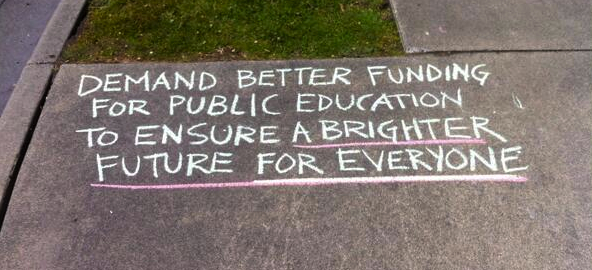
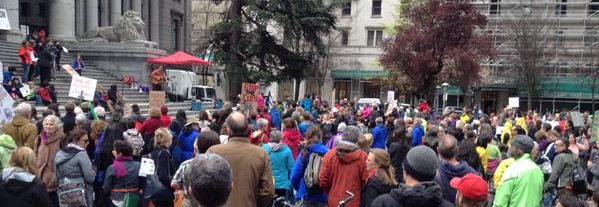






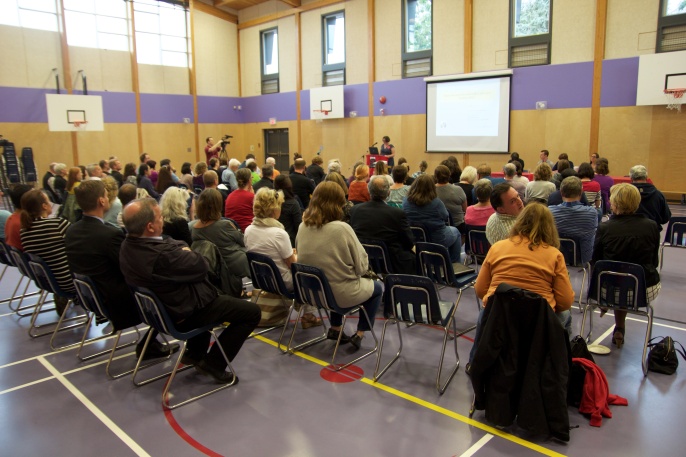

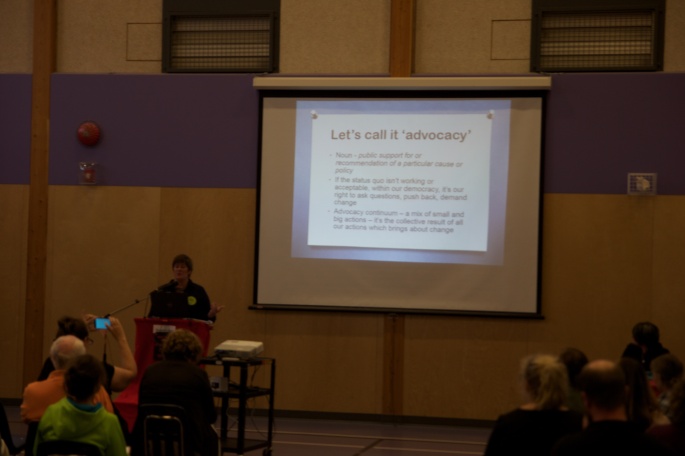
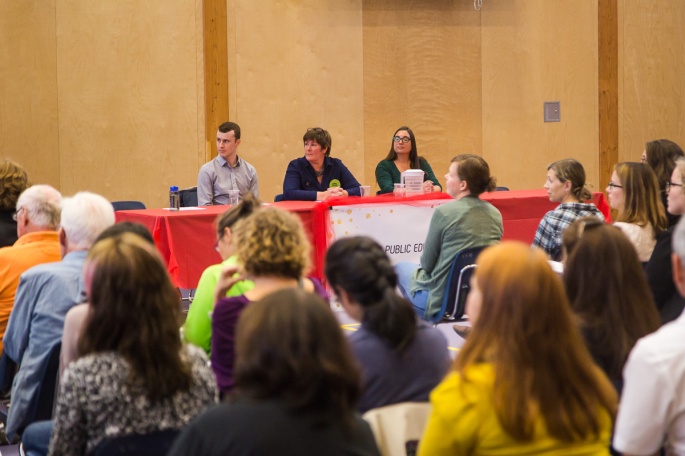

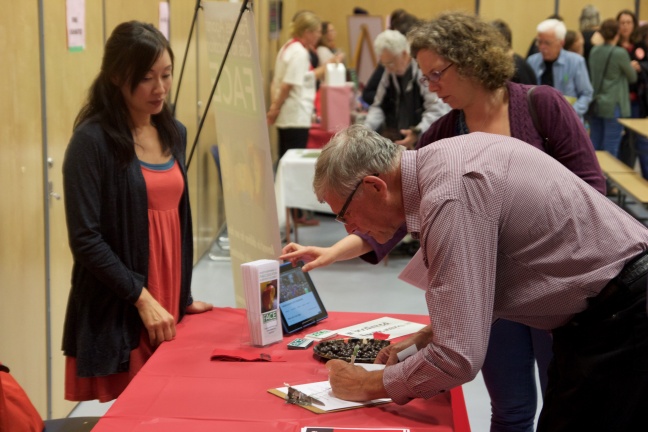
You must be logged in to post a comment.